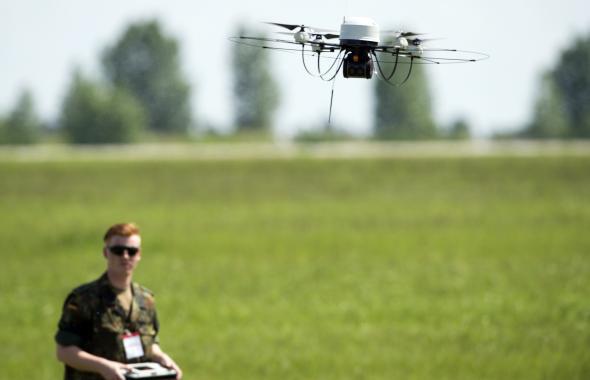The Federal Aviation Administration has needed to set drone regulations for, ahem, years, and now it seems like it’s finally on their way. But drone advocates may not be happy.
On Monday the Wall Street Journal published a report about the direction the FAA proposal seems to be going in. Sources told the Journal that the agency will require drone operators to have a license, to fly drones during the day below 400 feet, and to keep the drones in the operators’ sights at all times. Drones will also be put in broad weight categories, so, for example, a 2-pound drone and a 50-pound drone would be regulated the same way.
Sources said that the licenses would probably require people to spend hours learning to fly normal planes. The Journal points out that drone advocates have been lobbying against a traditional pilot training requirement for people who only want to fly drones. The FAA already required pilot’s licenses when, earlier this year, it granted exemptions to six film companies, allowing them to use drones on set.
But the FAA has a lot to manage and seems tentative about issuing loose rules. The agency told the Journal in a statement that it is working to “integrate unmanned aircraft into the busiest, most complex airspace system in the world—and to do so while we maintain our mission—protecting the safety of the American people in the air and on the ground. That is why we are taking a staged approach to the integration of these new airspace users.”
On the other hand, many drones have real-time, first-person viewing tech that allows operators to have accurate and intuitive information about exactly where the drone is going and what it’s doing. Drone advocates say that all the different tracking and sensor technologies available make a pilot’s license unnecessary for flying a drone. Proponents also note that only being able to fly drones during the day in an operator’s line of site pretty heavily limits the usefulness of drones for things like large-scale surveying of land or structures.
Drone advocate Michael Drobac, who is the executive director of the Small UAV Coalition, is struggling to stay positive. “I feel like there’s a colossal mess coming,” he said.
